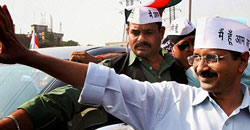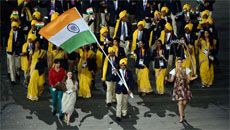“Military blunders, missteps by royalty and tales of sex, murder and drug abuse are examined in this look at scandalous deeds from ancient Egypt.” This was a statement by an online blog reviewer of the 2008 TV documentary, “Scandals of the Ancient World,” a film the reveals the behind-the-scene behavior around 2,000 years ago. In today’s world, we call it “sex, drugs and rock n’ roll.”
It seems that (except for rock n’ roll), the other two elements have been part of our existence on this planet since the first humans interacted with each other and discovered that power and monetary gain could be obtained by deeds illegal or immoral – or both.
Merriam-Webster Dictionary defines a scandal as “an occurrence in which people are shocked and upset because of behaviour that is morally or legally wrong.”
In the National Public Radio (NPR) documentary, “Psychology of Fraud and Scandal: Why Good People Do Bad Things,” researcher Ann Tenbrunsel at the University of Notre Dame who studies unethical behaviour explains “When people face an ethical decision, they clearly understand the choice that they are making. We assume that they can see the ethics and are consciously choosing not to behave ethically.” She goes on to add, “They choose to do wrong and are frequently blind to the ethics of that situation.”
And of course, scandals are nothing new in the political arena and this holds true for British Columbia. There are some noteworthy political scandals in the province that rocked headline news over the last several decades.
Who could forget 2003? It was not a good year for the Liberals because of two infamous acts. In January, Premier Gordon Campbell was arrested by the Maui Police Department and charged with driving under the influence and his photo splashed across newspapers and on televisions around the world. He was fined $1,350 in March and was ordered to take a substance abuse program, which he completed in BC.
In December of that year, the RCMP armed with search warrants, raided several private residences as well as the BC Legislature. They were investigating allegations of criminal acts in the sale of BC Rail to CN Rail. In 2010, seven years after the initial raid, two ministerial aides Dave Basi and Bob Virk plead guilty to benefiting from leaking information about the sale and breach of trust.
And the NDP are no strangers to allegations of shady activities. While the NDP governed the province for 9.5 years, the party had a vision of building aluminum ocean-going catamarans or “fast ferries,” which hit the seas in 1998. The three ships cost $450 million to build, but had major technical malfunctions from the outset. The Fast Cats were deep-sixed by the Liberals, who were swept into power in 2001 and were sold for less than $20 million.
The most recent event to explode in the media was Portland Hotel Society (PHS) scandal earlier this year. The society had a budget of $28 million and was mandated to provide services to the residents of Vancouver’s drug-infested Downtown Eastside neighbourhoods. The board of directors resigned when a recent KPMG audit revealed that they had used some of the budget on extravagant spending by certain members and that proper records had not been kept for several years.
Embroiled in this scandal was Vancouver-Mount Pleasant NDP MLA Jenny Kwan, who’s former husband Robert Dan Small was a PHS Director. He had taken his family on trips to Bristol, Vienna and Disneyland, all paid for by the Society. Kwan has since repaid the $35,000 expenses.
The two main political parties in BC have adopted several measures over the past number of years to prevent scandals in the political arena.
Shane Simpson is the NDP MLA for Vancouver-Hastings. He says that whether it’s political or non-political, there are a number of things that can be done to prevent future scandals. “Transparency is one of the most important elements. We in the NDP have strict guidelines for our MLA’s. After an election, they will meet with the conflict commissioner to outline the rules each member is expected to adhere to.”
Ben James is the Communications Director for the Government of BC. And like his counterpart across the isle in the Legislature, James says his party’s MLA’s also meet with the conflict commissioner to go over accountability and spending rules. “We feel this will give the voters more confidence in the process because the numbers are there for all to see,” he adds.
You can go online at www.leg.bc.ca and look for “Members Remuneration” on the tab to take you to the page.
So does this make citizens feel more comfortable and enlightened? Darpan Magazine visited the New Westminster campus of Douglas College to speak with three individuals from a variety of backgrounds and ages to gain their perspectives on the effects of scandals, political or otherwise, on students and the general public.
“I believe that scandals are perpetrated by the media because reporting them makes money for the media outlet. Everyone loves juicy scandals because it is drama and attracts attention,” says Tracy Ho, who is the College Relations & Membership Outreach Coordinator.
She goes on to say, “Scandals get sensationalized and they often get more coverage than they deserve” and as far as she’s concerned, the media often does not give both sides of the story. “In my opinion, the Portland Hotel Society scandal was sensationalized and very little was reported about the many good things the Society did for residents of the Downtown Eastside. All the focus was directed at the board of directors that squandered a lot of money and I’m disturbed at how little the positive side of the issue was not brought out to the public.”
Ho says politicians go into their offices with the right vision but lose their way. “It’s a lack of leadership that I find is missing.” Could these events prevent good people from forwarding their names to run for public office or for non-profits? “It would be too bad if this was the case. For me, I would most certainly step forward but I realize that my name might be dragged through the mud by the media if something went wrong. I would still do it because I want to help people.”
Lorna Howat is a student at the campus and the Internal Relations Coordinator. She is studying to be a social worker to help the disadvantaged. Unlike Ho, she believes the media has a responsibility to report on scandals like the PHS. “These kind of things need to be reported, especially on the amount of money spent by the board on vacations and trips – it’s disgusting,” she says. “The money was earmarked for the poor and disadvantaged, not for lavish spending.” Howat says the systems are corrupted and poor-bashing goes on all the time. Would she run for office? “No, I would not but I will be an advocate for those that can’t stand up for themselves.”
Tim Rattel, who is the Executive Director of the Douglas College Students Union, has strong views on scandals. “The media seems to pick and choose the stories they want to get out to the public. And look at the number of former media members, who have been elevated to power. People like Pamela Wallin and Mike Duffy are now embroiled in that huge Senate scandal.”
Rattel believes that the rich are in a position of power. “Many think they’re ‘entitled’ and follow the model others have established in politics.” In respect to the question of whether or not he would run for office, he says, “I don’t think my skin is tough enough especially if I had to deal with the media on a regular basis. I wish they would find a balance to report on what is real and what is not. And I think it’s too bad that the public doesn’t think a lot of this is outrageous.”
There is an enormous amount of work, volunteer and paid, done by a majority of well-intentioned individuals, who give so much of their time and money to worthwhile causes creating a better society for all of us. However, in spite of the safeguards put in place by political parties, corporations, non-governmental organizations, societies and even on the religious side of the ledger, there will always be someone or a group, somewhere who believes the rules do not apply to them. When I was a radio news anchor, I was taught early on, as are most news people that ‘if it bleeds, it leads.’ In other words, sensationalize the news.
But can you imagine if, all of a sudden, there were no more scandals in this province? We wouldn’t have to kill as many trees as we do and that would decrease the demand for BC lumber and throw even more people out of work, including the print and electronic media. And wouldn’t that be scandalous?



